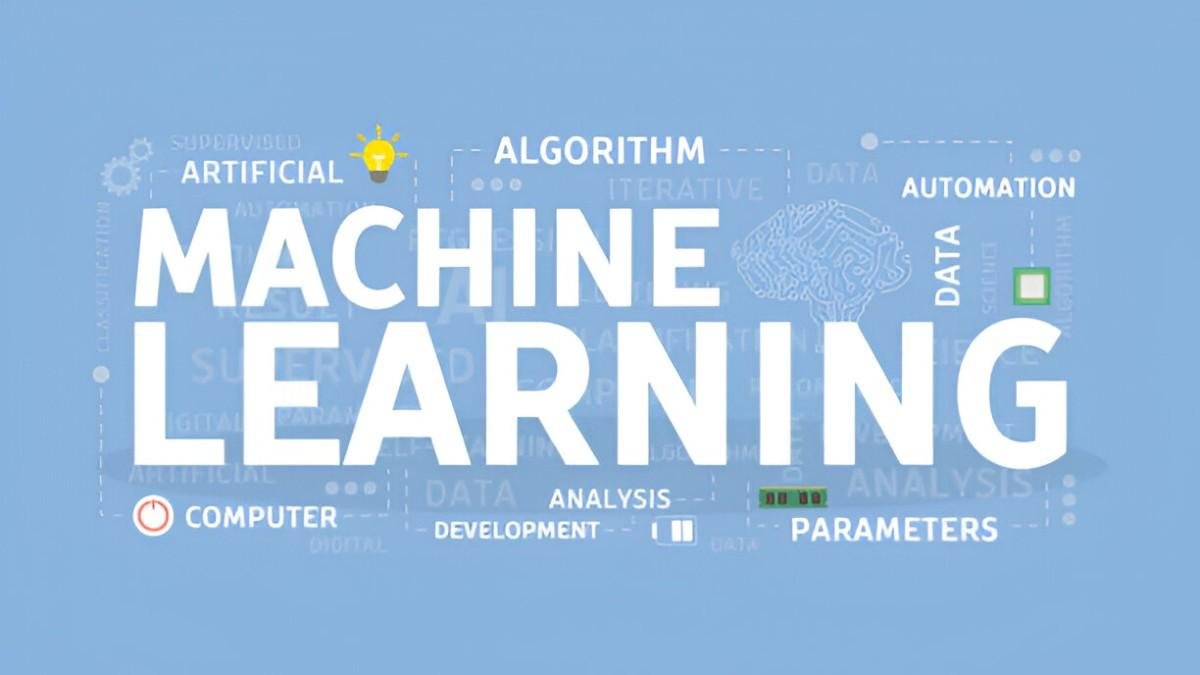Machine learning is one of the most transformative fields in the world today. It is revolutionizing industries, from healthcare and finance to marketing and manufacturing. If you’re just starting to explore machine learning, it can seem overwhelming with the sheer volume of concepts, techniques, and technologies involved. However, the right courses can provide you with the foundational knowledge necessary to build a career or advance your skills in this dynamic field. In this article, I’ll walk you through the top 5 courses that cover the basics of machine learning, offering insights, comparisons, and examples to help you make an informed decision about which course to pursue.
Table of Contents
1. Coursera – Machine Learning by Andrew Ng
One of the most popular introductory machine learning courses, Andrew Ng’s course on Coursera has become a classic in the field. As a co-founder of Google Brain and a professor at Stanford University, Andrew Ng brings his extensive experience to the course, making it one of the most comprehensive yet accessible introductions to machine learning.
Course Overview:
The course covers a broad range of foundational topics, including:
- Supervised learning
- Unsupervised learning
- Neural networks
- Support vector machines
- Clustering and anomaly detection
The course’s structure is designed to be suitable for beginners. It includes practical exercises and programming assignments that help you apply the theory you’ve learned.
Why It’s a Top Pick:
- Deep Learning Insight: While the course is focused on traditional machine learning, it also lays the groundwork for diving deeper into neural networks and deep learning.
- Beginner-Friendly: The course starts with simple concepts and gradually builds up to more complex ones, which is ideal for those with little to no experience in the field.
- Reputation and Trust: Andrew Ng is a renowned figure in AI and machine learning. His teaching style is well-received for its clarity and depth.
Course Format and Delivery:
The course consists of video lectures, quizzes, and peer-graded assignments. Each module is followed by a set of exercises that reinforce the material covered. This hands-on approach is especially helpful for learners to understand and apply theoretical concepts.
Pricing:
While Coursera offers the course for free, you can pay for a certificate if you wish to receive official recognition upon completion.
2. edX – Introduction to Artificial Intelligence (AI) by Microsoft
Offered by Microsoft on edX, this course provides an excellent foundation for those interested in learning both artificial intelligence (AI) and machine learning. The course is structured to give you a solid understanding of AI concepts, with a focus on machine learning techniques.
Course Overview:
The curriculum includes:
- Basics of machine learning algorithms (classification, regression, clustering)
- Supervised and unsupervised learning
- Neural networks and deep learning
- Introduction to Python for AI and ML programming
Unlike many introductory courses that only focus on theory, this course emphasizes the practical application of AI and machine learning. You’ll work with tools like Python and Azure Machine Learning to implement algorithms and techniques.
Why It’s a Top Pick:
- Hands-on Experience: The course includes practical labs and exercises, offering learners an opportunity to apply their knowledge using tools that are widely used in industry.
- Professional Relevance: Microsoft’s involvement adds a layer of credibility, and the course is designed to align with industry needs, making it an excellent choice for anyone interested in pursuing a career in AI or machine learning.
Course Format and Delivery:
The course is a self-paced learning experience, meaning you can start anytime and move at your own speed. The lessons are delivered via video lectures, and assignments are designed to give you direct exposure to real-world machine learning problems.
Pricing:
The course is free to audit, but you can pay for a verified certificate upon completion.
3. Udacity – Intro to Machine Learning with Python and Pytorch
Udacity is known for its immersive and industry-relevant courses, and their “Intro to Machine Learning with Python and PyTorch” course is no exception. This course focuses on teaching machine learning using Python and one of the most popular libraries for deep learning—PyTorch.
Course Overview:
The course covers:
- Supervised learning techniques (linear regression, decision trees, k-nearest neighbors)
- Unsupervised learning techniques (clustering, principal component analysis)
- Neural networks and deep learning with PyTorch
What makes this course stand out is the focus on PyTorch, which is gaining popularity in both research and production environments due to its flexibility and ease of use. You’ll also get an introduction to machine learning in the context of data science.
Why It’s a Top Pick:
- In-depth Coverage: The course not only covers the fundamentals of machine learning but also dives into deep learning, which is essential for modern AI applications.
- Project-Based Learning: The course is structured around projects that help you develop a portfolio, which is important if you’re looking to demonstrate your skills to potential employers.
Course Format and Delivery:
This is a project-driven course, so you will have the opportunity to work on real-world problems. In addition to video lectures, there are quizzes, hands-on exercises, and projects that allow you to apply your learning immediately.
Pricing:
Udacity’s courses are known for their higher price point. This particular course offers a Nanodegree program, which provides in-depth instruction and personal mentorship, but it comes at a cost.
4. DataCamp – Introduction to Machine Learning with Python
DataCamp offers a beginner-friendly, hands-on introduction to machine learning with Python. It is an excellent choice for learners who want to start applying machine learning concepts immediately using Python and its ecosystem of libraries, including scikit-learn and pandas.
Course Overview:
The course covers:
- Data pre-processing
- Supervised learning algorithms (e.g., logistic regression, decision trees)
- Evaluation metrics for classification and regression tasks
- Introduction to unsupervised learning (clustering)
With a strong focus on data science applications, this course ensures that learners understand how to implement machine learning algorithms and evaluate their performance in real-world scenarios.
Why It’s a Top Pick:
- Data Science Focus: The course is tailored for those who are looking to enter the data science field, as it includes many practical examples of how machine learning fits into the broader scope of data analysis.
- Interactive Learning: DataCamp is known for its interactive approach, where you can write code directly in your browser, making it easier to get hands-on experience without needing to set up complex environments.
Course Format and Delivery:
The course is highly interactive, with short video lessons followed by exercises that you can complete in the browser. This allows for immediate feedback and learning, which is great for beginners.
Pricing:
DataCamp operates on a subscription model, and while the first chapter of the course is free, you will need a subscription to access the rest of the content.
5. Kaggle – Intro to Machine Learning
Kaggle is a platform that’s widely known for its data science competitions, but it also offers excellent courses. The “Intro to Machine Learning” course on Kaggle is a free and highly interactive course that covers essential machine learning concepts. It’s particularly useful for learners who enjoy a more hands-on, experiment-driven approach to learning.
Course Overview:
The course introduces:
- Basic machine learning concepts
- Supervised learning models like decision trees and k-nearest neighbors
- Techniques for evaluating machine learning models
- Feature engineering and model selection
Kaggle’s hands-on approach is a big highlight, as you get to directly apply machine learning techniques to real datasets and compete in challenges to refine your skills.
Why It’s a Top Pick:
- Real-World Applications: By using Kaggle datasets, you get immediate exposure to the type of data that is used in real-world machine learning projects.
- Free and Accessible: The course is entirely free, making it an accessible option for learners with no financial investment.
Course Format and Delivery:
Kaggle’s course format is centered around short lessons and hands-on coding exercises. There’s a lot of room for experimentation, and you can immediately test your skills on real data.
Pricing:
Completely free, which makes it an ideal choice for those on a budget.
Conclusion: Which Course Should You Choose?
Choosing the right course depends on your specific goals and learning preferences. If you prefer a structured, deep dive into machine learning, Andrew Ng’s Coursera course or Microsoft’s edX course might be right for you. If you’re looking for hands-on projects and a focus on industry-relevant tools like PyTorch, Udacity and DataCamp could be excellent choices. If you want a completely free option with a strong community component, Kaggle’s course is the way to go.
To help you compare, here’s a table summarizing the key features of each course:
| Course | Platform | Key Focus | Cost | Project-Based | Programming Languages |
|---|---|---|---|---|---|
| Machine Learning by Andrew Ng | Coursera | Supervised and unsupervised learning | Free (Certificate $) | Yes | Octave, MATLAB |
| Introduction to AI by Microsoft | edX | AI and machine learning basics | Free (Certificate $) | Yes | Python, Azure ML |
| Intro to ML with Python & PyTorch | Udacity | Machine learning with deep learning | Paid | Yes | Python, PyTorch |
| Intro to ML with Python | DataCamp | Data science and machine learning basics | Subscription | Yes | Python, scikit-learn |
| Intro to Machine Learning | Kaggle | Machine learning basics with real datasets | Free | Yes | Python, scikit-learn |
Ultimately, it’s important to choose the course that fits your learning style, budget, and long-term goals. Regardless of the course you pick, all five will provide you with the foundational knowledge necessary to take the next step in the world of machine learning. Happy learning!





